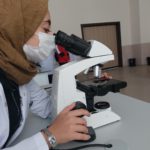Brain.
AccordIng to some professors, It’s a dIvIne partIcle…
We are talking about an organ that makes humans human and takes on the task of managing the entire body. While trying to solve all the complexities, it is actually the biggest complexity. This complexity has yet to lead us to enlightenment. The discovery of the human brain dates back to the 1820s, but all its secrets have yet to be unravelled. Every mystery of the brain that remains closed also brings a new neurological disease. Today, we are examining a rare neurological disease: Hyperekplexia.
Introduction
People can be afraid of many things in daily life. The brain is constantly alert, especially to sudden stimuli. Our common startle reflex allows us to protect ourselves from stimuli. However, for patients with Hyperekplexia, this is a complex neurological problem. Hyperekplexia is the condition of being excessively sensitive to sudden auditory, tactile, and visual external stimuli and giving a pronounced startle response.
Physiology
Hyperekplexia is caused by the inability of the substance called glycine, one of the major neurotransmitters that significantly affect the central and peripheral nervous systems, to exhibit its inhibitory effect, particularly in the brainstem. It is not epileptic. It is a paroxysmal (sudden and temporary) disorder. In some cases, it can be hereditary. The gene carrying this disease can be recessive or dominant. Hyperekplexia is also the first disease in human physiology to show a mutation in neurotransmitter genes.
Process
This disease starts from infancy. In some cases, it has been observed that the baby tends to startle frequently, even while in the womb. As they age, cases with responsibilities such as attending school and joining social classes have failed in these areas. Cases exposed to childish pranks first and then peer bullying have also been found to have many psychosomatic illnesses along with Hyperekplexia. Particularly in some cases, a significant level of anxiety has been observed. For this reason, problems with lesson failure and lack of focus have also been encountered.
Cases
Hyperekplexia is hereditary, and it can be seen in many siblings. This leads to different problems. The occurrence of this disease in many members of a family indicates that the individuals in the family are also prone to psychological illnesses.
In a family case studied at Elazığ Fırat University Faculty of Medicine, the disease was detected in three members of a five-person family. This family was also receiving support from the faculty’s child-adolescent-adult mental health centre. Many psychological disorders such as anxiety, substance use, behavioural disorders, hyperactivity, and incompatibility with social life were also seen in family members.
It is known that diagnosing the disease at a young age makes treatment easier and more effective. However, because it is a neurological disease, it does not follow the same course in every case. It is quite difficult to make the correct diagnosis of this disease. Patients need to be very careful about sudden stimuli, and families must be dedicated, which plays a vital role in the course of the disease.
Due to the high prevalence of consanguineous marriages in our country, hereditary diseases are also an important problem for us. Even in such a rare hereditary disease, there are quite a few cases in our country. As a nation, we must be aware of this issue and take the necessary actions. Otherwise, due to such neurological diseases affecting the family tree, many innocent people are victimized, and innocent children begin to suffer even in the womb.
To read the original Turkish version of this article, click here.
References:
http://www.firattipdergisi.com/pdf/pdf_FTD_1149.pdf
https://jag.journalagent.com/behcetuz/pdfs/BUCHD_6_1_78_80.pdf
Main image: Pexels


